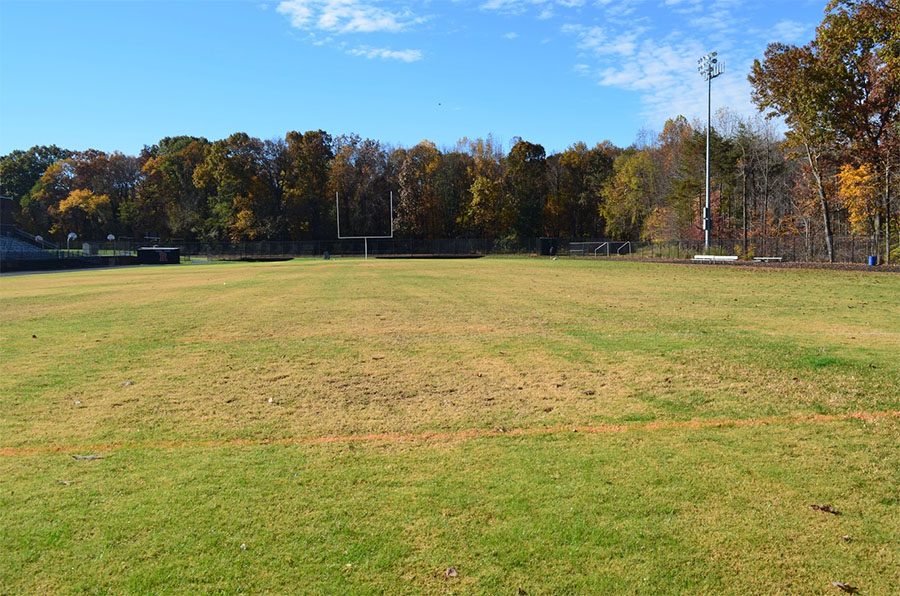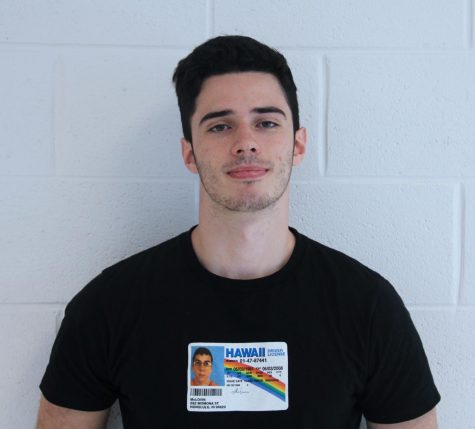Stay Realistic With Bermuda Grass
Joseph B. Good stadium was updated with Bermuda grass in the summer of 2018.
November 20, 2018
With the installation of bermuda grass on the sports field at Joseph B. Good Stadium this summer, many athletes and students had renewed hope of an improved field. However, as rain exposed flooding problems with the new material, players and students have been quick to request a transition to a turf field. What many critics don’t realize, though, is that turf is simply not a feasible option for RHS. Students should stop demanding the turf field because of its unrealistic cost, especially after the new grass–which is a huge improvement–was installed this past summer.
After the natural grass field was replaced with bermuda grass, athletes were excited to play on the updated field. But much to the dismay of players and spectators, it has since been observed that rain can easily flood the new bermuda grass field, causing 26 football, soccer and field hockey games to be postponed or moved to another location.
Despite the advantages, a turf field is simply not an option. The installation of turf would cost anywhere between $90,000 to over $1 million, an astronomical number considering the recent bermuda grass installation cost $30,000.
In addition, turf does not necessarily provide any additional benefits besides dry fielding. Turf is a lot rougher and has a tougher texture than natural or bermuda grass. Planting feet and sudden changes in speed and motion can cause serious injuries to the lower body, particularly the knees. Being tackled also brings a harder landing; as turf is artificial, it is not naturally soft like grass.
While many high schools in Montgomery County Public Schools (MCPS) such as Richard Montgomery, Bethesda-Chevy Chase (B-CC), Gaithersburg, Wootton and Paint Branch have turf fields, the cost to install turf for RHS would be excessive and unnecessary, especially considering how much of an improvement the new field already is.
B-CC installed their turf field in the past year, costing the school $1.45 million, according to a July 7 Bethesda Magazine article. The installation of the field can be credited to many B-CC families that donated large sums of money to make the upgrade possible.
Many recent critical comments have centered around the true point that flooding is less likely with turf fields because they are synthetic and therefore can endure any type of weather. The maintenance of turf fields is also much lower compared to other materials including bermuda grass because it does not require any growing or painting lines with each individual event. But considering the unrealistic costs and tendency to increase sports injuries, bermuda grass was the smartest choice.
Students and players should stop worrying about the grass on the new field and continue focusing on building teamwork, school spirit and improving records.




